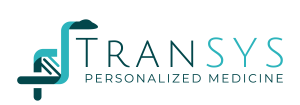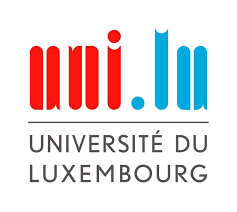Biography
Bachelor’s degree in Clinical Engineering at La Sapienza, Università di Roma: knowledge of mathematics and the other basic sciences and adequate skills in the methodological and operational aspects to enable clinical engineers to describe and interpret engineering problems in their general aspects and, in depth, those relating to clinical engineering. This knowledge enables them to use techniques and tools for the design of components, systems and processes; to conduct experiments and to analyse and interpret their data.
Master’s degree in Biomedical Engineering – Bioengineering for Cells, Tissue and Nanotechnologies (BCT) at Politecnico di Milano: knowledge in developing devices, equipment, systems and procedures for prevention, diagnosis, therapy and rehabilitation; designing and manufacturing new prostheses, artificial organs and life-supporting devices; designing and developing advanced and innovative materials and assessing their ability to support cell proliferation for the reconstruction of biological organs and tissues; managing and using methodologies and technologies in the hospital environment correctly and safely; contributing to technological development in the field of biotechnology and nanotechnology. BCT specialisation places special emphasis on Good Laboratory Practice (GLP), routine laboratory techniques, adequate technical-scientific and medical-biological training.
Ongoing validation for pharmacological device patent: presented a device for micro-particles delivery to make them bypass the blood brain barrier; case of study: Alzheimer’s Disease.
Shivom Ventures Ltd. supervised by Dr. Axel Schumacher (CEO)
PhD student at the Faculty of Biomedical Sciences, Department of Human Genetics, Laboratory for Systems Medicine, KU Leuven, supervised by Prof. Dr. Dr. K. Van Steen, Prof. Dr. W. Lemahieu (interdisciplinary doctorate application pending: Faculty of Business Economics)
- GitHub: https://github.com/GiadaLalli
Secondments
Secondment 1: Learn about analytical component integration and bioinformatics processing and variant analyses with family-based data collections
Secondment 2: Learn about Point-of-Care technologies for molecular diagnostics
ESR 10 Project
Development of a Federated Blockchain-based Clinical Architecture for Empowering Data Interoperability
The project’s aim is to develop a universal analytical platform and data-hub including the largest number of known data analysis techniques and Next-Generation Sequencing (NGS) technologies developed to date, accompanying this technical solution with a proposed standard Lexicon. The Decentralised Federated Framework (DFF) is geared towards breaking down existing barriers in healthcare data exchange, providing the world’s largest open-source repository, supported by blockchain technology. Frontend Design will be followed by build and test cases (e.g., clinical trials setting, cohort risk assessment, patient stratification), split into various phases of software development, testing and integration of pipelines thenceforth training within the TranSYS members and partners. This phase is then followed by a staged release within the TranSYS network for feedback, adaptive development, testing of secure permissioning, hashed data flow, possible contracts optimisation, auditing features, cyber-security testing, testing and main-net support.
Scientific Interests
-
Data Interoperability, Federated Systems, Blockchain Technology, Software Development, Population Studies, Pattern Recognition, Genetic Distance among dataset, Systems Medicine, Bioinformatics, DNA/RNA analysis, Data Manipulation and Biological Data Visualisation, Data Integration, Scientific Communication, Population Genetics, Statistical & Probabilistic Analysis of Biomedical Data.
General Interests






